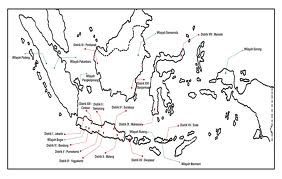SNI certificate for Indonesian babies, children’s clothing
The Committee on Technical Barriers to Trade of the World Trade Organization has issued notification of a draft
decree, published by the Indonesian Ministry of Industry.
Children’s and babies clothing products distributed in Indonesia that originated domestically or are imported must
meet the requirements in SNI 7617:2010 - the Indonesian National Standard. These requirements are designed to
increase the overall quality of clothing produced whilst providing consumers with rigorous safety protections and
establishing fair trade in competition.
The Product Certification Body (LSPro) tasked with issuing an SNI product certificate will be appointed by the
Indonesian Ministry of Industry and accredited by the National Accreditation Body of Indonesia (KAN.) To be
accredited to certify, an LSPro will need to demonstrate that there has been comprehensive testing of the
conformity of a products quality against SNI requirements and implementation of the Quality Management System (QMS)
SNI ISO 9001-2008 or other recognized quality management system by way of an audit.
Product testing in accordance with SNI 7617:2010 can only be undertaken by laboratories with the capacity to test
for azo dyes and formaldehyde content in fabric used for babies and children’s clothing. The SNI requirements state
that no toxic azo dyes can be present in fabrics used for the manufacture of clothing classified for either babies
or children up to 36 months.
Formaldehyde levels cannot be higher than 20mg per kg for fabrics used to produce children’s clothing up to 36
months and 75 mg per kg for fabrics used in clothing for children aged over 36 months. Further to this, SNI marking
requirements necessitate that the information for babies and children’s clothing must contain the name of the
brand, the type and composition of fiber used, the country of origin and the designation as either a babies or
child’s garment.
Testing laboratories based overseas will require accreditation that is recognized by an APLAC / ILAC agreement
between KAN and that respective country’s accreditation body. Additionally the Indonesian government must have
bilateral or multilateral agreements in the field of technical regulations with that particular laboratory’s
government.
Auditing of the implementation of a QMS is based on the Institute of Quality Certification’s guidelines toward
guaranteeing quality, accredited either by KAN or an overseas exporting territory’s accreditation body, which has
signed a Mutual Recognition Arrangement with KAN.
| 
